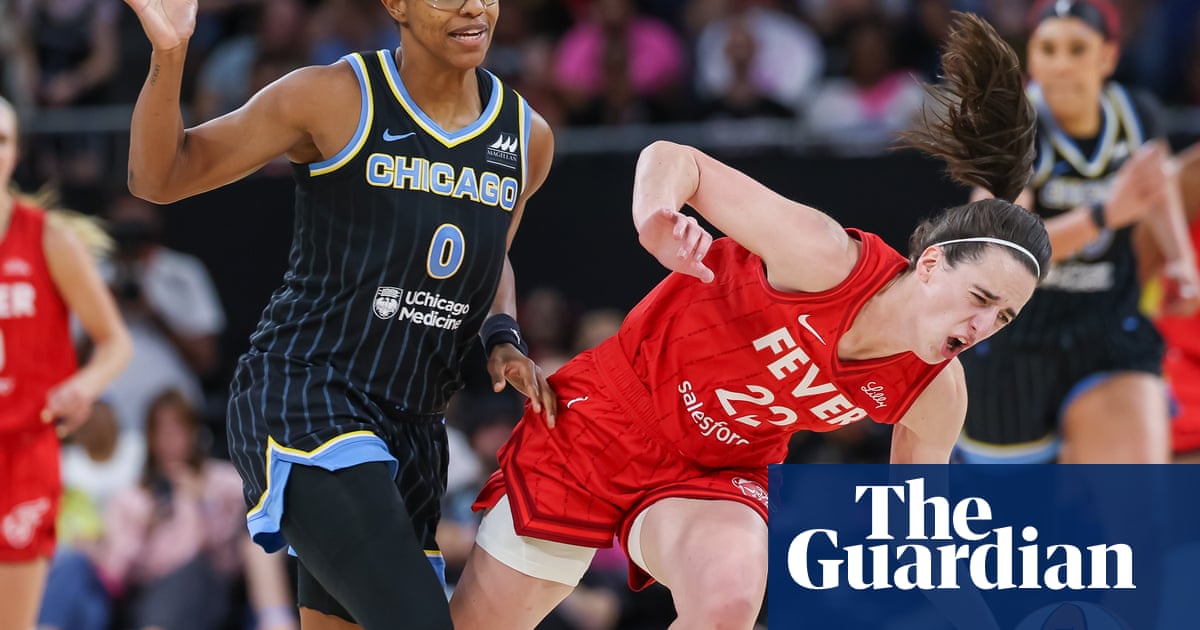rewrite this content and keep HTML tags (remove this from content : rewrite this content and keep HTML tags)
Before Angel Reese spoke unapologetically. Before A’ja Wilson could do it all. Before Maya Moore dedicated her life to social good. Before Candace Parker led by example.
There was another prominent Black woman who was the living embodiment of all those qualities. Her name was Ananda Lewis.
The popular MTV VJ and advocate passed away after a grueling battle with breast cancer at the age of 52 on Wednesday. She was best known for being the host of BET’s Teen Summit, Total Request Live, Hot Zone and her syndicated talk show The Ananda Lewis Show.
We’re saddened to learn of the passing of beloved MTV VJ, Ananda Lewis. Through her on-air hosting and interviews, Ananda helped raise a generation of music fans. Our thoughts are with her family & loved ones. pic.twitter.com/7hMq56GLDR
— MTV (@MTV) June 12, 2025
At every which way she turned, Lewis used her platform to not only entertain, but to empower. She would give the latest on what was hot in music, while at the same time touching on pertinent social issues. Along the way, she cultivated an endearing and empowering persona rooted in speaking truth to power and staying true to oneself.
Even though by all accounts she never set foot on a basketball court, nor has any direct link to the sport (other than interviewing Kobe Bryant for Teen Summit), she did put forward the blueprint for women basketball players to embrace living out their truth.
The mutuality between Lewis and the WNBA can be traced back to the 1990s, a that decade saw a greater depth of visibility of Black women in society and culture.
Angela Bassett was dominating the box office with films such as What’s Love Got to Do With It, Waiting to Exhale and How Stella Got Her Groove Back. Whitney Houston, Janet Jackson, Mariah Carey, Aaliyah and Toni Braxton were constantly on the charts, in the videos and selling millions of records. Oprah Winfrey was the queen of daytime talk, with Rolanda Watts not too far behind. Lauryn Hill, Queen Latifah, MC Lyte, Salt N Pepa, Lil Kim, Missy Elliott, Foxy Brown and Da Brat proved that hip hop can be a she thing and not just a g thing. Living Single, Moesha, Sister Sister and The Parent Hood made you laugh and cry at stories told through the lens of Black women protagonists.
Out of all this emerged Lewis, who found her niche in the world of music television and youth culture.
So too did Black women in hoops with the formation of the WNBA in 1996.
The skills of Sheryl Swoopes, Lisa Leslie, Cynthia Cooper, and Tina Thompson translated from the hardwood to Madison Avenue as they proved that Black women athletes can be marketable and relatable. Swoopes got her own Nike shoe, the Air Swoopes. Leslie was featured on programs like Moesha and Sister, Sister. Cooper and Thompson bore the brunt of Kyla Pratt’s hilariously blunt critiques in the iconic Little Rascals’ themed commercials. Swoopes and Leslie joined Dawn Staley in a Spike Lee-directed Nike commercial under the banner of “We Got Next,” solidifying the undeniable truth that Black women were here to stay.
Nike’s “Little Rascals” ads featured WNBA stars Lisa Leslie, Cynthia Cooper-Dyke, Tina Thompson, Sheryl Swoopes and the legendary actress Kyla Pratt.
Lisa Leslie also appeared in hit television shows Moesha, One on One, The Game and more.#BlackHistoryMonth | #WNBA pic.twitter.com/xqNAjVpF0y
— The Committee Sports Group (@TheCommitteeSG) February 28, 2024
At the right moment, Lewis talked about the important matters of the day. She did panel discussions in the aftermath of the Columbine shooting in 1999, tackled hard hitting subjects on Teen Summit and won an NAACP Image Award for hosting the MTV program True Life: I Am Driving While Black, which touched on the subject of racial profiling.
Years later, it was the WNBA’s turn to take up the mantle. In 2016, Maya Moore along with players on the Minnesota Lynx and New York Liberty spoke up following the police killings of Philando Castile and Alton Sterling, one month before Colin Kaepernick knelt. Four years later, the league banded together after the police murders of George Floyd, Ahmad Arbery and especially Breonna Taylor to call out racial injustice during the COVID-restricted season in the Wubble. Not to mention ousting former Atlanta Dream owner Kelly Loeffler and helping to elect Rev. Raphael Warnock to the U.S. Senate.
Today, the impact of Ananda Lewis is felt in the way Angel Reese has built her brand from the ground up, very much rooted in being who she is without compromise. In the way that A’ja Wilson uses every chance she can to tell her story and that of other Black women and girls. In the way that Nneka Ogwumike elevates the game through advocacy. In the way that the players exude cultural confidence when making tunnel entrances before games. In the way that Elle Duncan, Andrya Carter, Carolyn Peck, Chiney Ogwumike and the team of Black women at ESPN present the game. In the way that Terrika Foster-Brasby, Isis Young and LaChina Robinson call the game. In the way that Meghan L. Hall, Jordan Robinson, Arielle Chambers and Khristina Williams describe the game.
Love the fit coordination. Lapels, dazzle, cuts, color. Outstanding.
Elle Duncan, Andraya Carter, and Chiney Ogwumike for women’s college basketball, always hits pic.twitter.com/xmJfD7avqb
— Hannah Vanbiber (she/her) (@HannahVanbiber) April 6, 2025
What Ananda Lewis started, the women in WNBA are continuing.



















